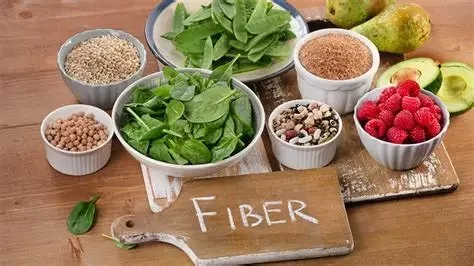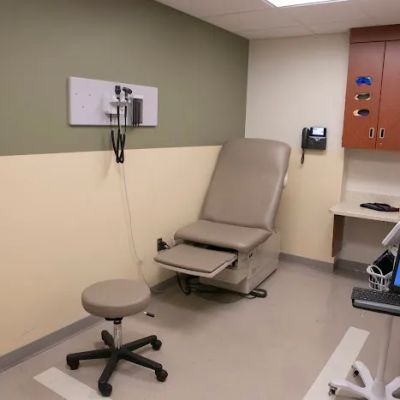- fiber-supports-digestive-health
- soluble-fiber-and-cholesterol-reduction
- daily-fiber-intake-and-common-deficiencies
- real-life-impact-of-high-fiber-diets
- tips-for-increasing-fiber-in-your-diet
- fiber-recommendations-from-heartcare-hub
1. Fiber: The Unsung Hero of Digestive Health
Fiber plays a vital role in maintaining a healthy digestive system, yet it's often overlooked in modern diets. Dietary fiber adds bulk to the stool, which helps promote regular bowel movements and prevents constipation. It also supports gut microbiome health by feeding beneficial bacteria in the colon—essential for reducing inflammation and enhancing nutrient absorption.
There are two main types of fiber: soluble and insoluble. Insoluble fiber, found in whole grains and vegetables, moves through the digestive system largely intact, acting like a broom for the intestines. Without enough of it, symptoms like bloating, irregularity, or even hemorrhoids can become common.

2. Soluble Fiber: A Natural Ally for Lowering Cholesterol
2.1 How It Works
Soluble fiber, found in oats, legumes, apples, and flaxseeds, dissolves in water to form a gel-like substance in the gut. This gel traps cholesterol-rich bile acids and helps the body eliminate them. In response, the liver pulls cholesterol from the bloodstream to produce more bile acids—thereby lowering LDL (bad) cholesterol levels naturally.
Endeavor Health Northwest Community Hospital
endeavor health northwest community hospital
800 W Central Rd, Arlington Heights, IL 60005, USA

2.2 Backed by Science
A well-known study published in *The American Journal of Clinical Nutrition* found that just 5–10 grams of soluble fiber per day can result in a 5% reduction in LDL cholesterol. That may not sound like much, but over time, it contributes to reduced cardiovascular risk—especially when combined with other heart-healthy habits.
3. Why Most Americans Are Falling Short on Fiber
The recommended daily intake of fiber is about 25 grams for women and 38 grams for men. Yet, the average American gets only around 15 grams per day. This gap is often due to highly processed foods, low intake of fruits and vegetables, and fast-paced lifestyles that prioritize convenience over nutrition.
Skipping fiber doesn’t just impact digestion—it increases long-term risks of high cholesterol, type 2 diabetes, and weight gain. The fiber deficit is now recognized as a public health concern, prompting more experts to call for better awareness and education.
4. Real Stories: What Happens When You Prioritize Fiber
4.1 Sharon's Story: From Constipation to Clarity
Sharon, a 42-year-old teacher, dealt with irregularity and bloating for years. After being introduced to a high-fiber diet by a dietitian, she began adding chia seeds, oats, and roasted vegetables to her meals. “It took about three weeks, but I haven’t looked back,” she says. “Not only is my digestion smoother, but my energy levels are way more consistent.”
4.2 A Cholesterol Comeback
In a separate case, Tom, a 58-year-old accountant, managed to reduce his LDL cholesterol by 12% in just three months through a focused effort to increase soluble fiber intake. He replaced breakfast pastries with oatmeal, added lentils to his lunches, and snacked on pears instead of chips. “My doctor was shocked I made that kind of progress without meds,” he shared.
5. Practical Tips for Boosting Fiber—Without Overwhelm
5.1 Start Slowly and Stay Hydrated
Suddenly doubling your fiber intake can cause gas or bloating. Start with small changes—like swapping white rice for brown rice—and drink plenty of water to help fiber move smoothly through your system.
5.2 Read Nutrition Labels
Choose cereals with at least 5 grams of fiber per serving, or breads with whole grains listed as the first ingredient. Aim to get fiber from a mix of fruits, veggies, beans, nuts, and whole grains to get the widest range of benefits.
5.3 Build It Into Your Routine
Make fiber a non-negotiable part of your meals. A smoothie with flaxseed in the morning, a chickpea salad for lunch, and roasted Brussels sprouts at dinner can add up to serious digestive and cardiovascular gains.
6. HeartCare Hub: Your Partner in Digestive and Heart Wellness
At HeartCare Hub, we understand that small, daily habits can transform long-term health—especially when it comes to fiber. That’s why we offer a curated range of high-fiber food products, meal planning tools, and supplement guides to help support digestive health and cholesterol management naturally.
Whether you're just getting started or optimizing an already healthy diet, our team can help you find the best-fit options for your lifestyle. Make your gut and heart your allies—with real food, real guidance, and the power of fiber.






















Capital Health Medical Center – Hopewell
capital health medical center hopewell
1 Capital Way, Pennington, NJ 08534, USA